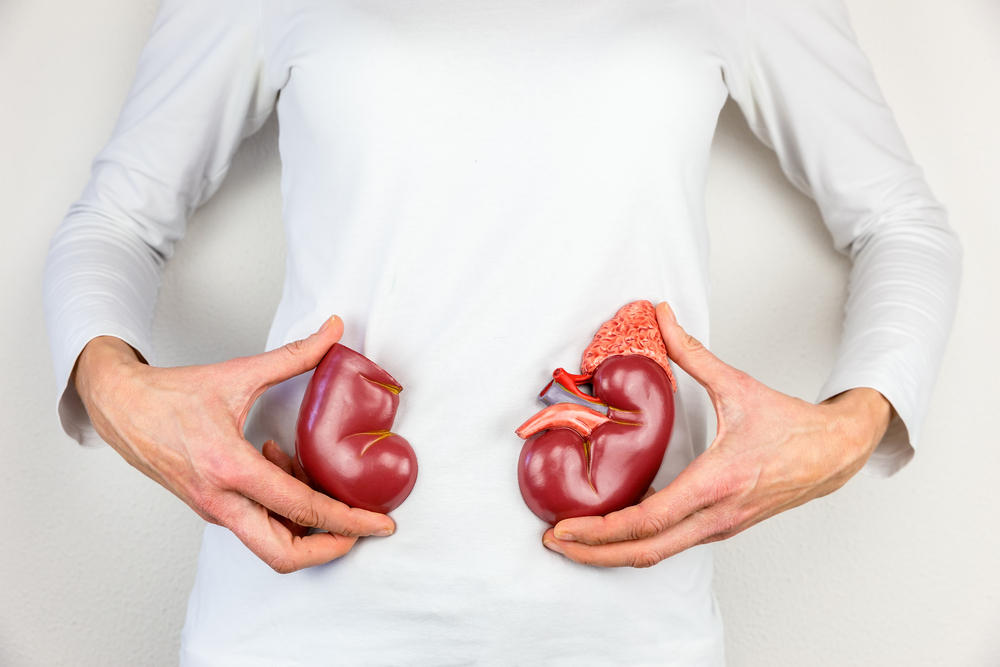A kidney infection is a type of urinary tract infection (UTI) that starts in the urethra or bladder and progresses to the kidneys. The condition is known medically as pyelonephritis, and it is caused by the bacteria E. coli. that moves from the anus to the kidneys via the urethra and bladder. The problem is especially excruciatingly painful, and it necessitates medical attention right away. A kidney infection can irreparably damage your kidneys or cause bacteria to spread into your bloodstream, resulting in a life-threatening infection if not adequately addressed.
Often, people confuse kidney infection with cystitis, a condition that makes urinating painful, but kidney infection is a much more severe condition. In this article we’ll be discussing everything about kidney infections and how can you check your kidneys with an at home kidney infection test.
What Causes Kidney Infection?
The bacteria travels up your urinary tract, infecting your bladder and kidneys. However, that isn't the only means of acquiring it. An infection in another part of the body can circulate to your kidneys through the bloodstream, and although having a kidney infection in this manner is rare, it can occur, particularly after invasive surgical procedures.
You are also exposed when you wipe from back to front after using the restroom or when dirty toilet paper comes into contact with your genitals. When bacteria or fungi infect your skin, the infection can spread to your bloodstream and kidneys, resulting in a kidney infection. Lastly, It can also occur through sexual activity where thrusting can transport bacteria up the urethra.

What Is Creatinine, and Why Is It Tested?
The kidney is one of our body's most essential organs, and a minor impairment can have serious consequences for one's general well-being. It is true that creatinine is synthesized in the muscles and then expelled into the bloodstream as the end product of the creatine phosphate reaction. It plays a role in muscle and other tissues' energy metabolism.
An elevated creatinine level increases the amount of toxins in your blood and exposes you to infection. Creatinine is removed from the body optimally through urine by healthy kidneys. However, the kidneys can end up unable to remove creatinine due to an excess of protein, dehydration, an obstruction in blood flow, and an increase in blood sugar levels, indicating kidney problems.
In many cases, the signs of a kidney infection manifest within a few hours. You may experience a fever, chills, nausea, and pain in your back or side.
Home Creatinine Testing for Kidney Infection
The major advantage of home testing is that it fosters early detection of problems. The kidney home test kit proactively decreases the chances of kidney problems developing. As part of routine, daily exercise, your muscles produce creatinine as a waste product. Normal kidney function involves your kidneys removing creatinine from your blood and excreting it in urine. When there is a kidney problem, creatinine levels in the blood rise and less is excreted in the urine. An abnormal creatinine level in the blood or urine may indicate there could be a kidney function problems.
A dipstick urine test that looks for albumin in the urine is one of the two types of urine tests, as stated by the National Institute of Diabetes and Digestive and Kidney Diseases (NIDDK). The second test evaluates the amounts of albumin and creatine in the urine and is known as the urine albumin-to-creatinine ratio (UACR). A normal UACR result is less than 30 milligrams per gram, and a higher reading may suggest that another test is required.

Difference Between Kidney Infection and Kidney Disease
Kidney infection is completely different from kidney disease. Kidney infections are limited to short-term issues that can arise due to problems like kidney stones, bladder infections, or other symptomatic maladies and due to a sudden illness or the use of certain prescriptions. Most importantly, it can be treated effectively over time.
Kidney diseases develop if you inherit a genetic or congenital issue that damages your kidneys and when one's daily activities stress the kidney functions. Kidney disease can also be caused by diabetes, heart disease, alcohol, and drug abuse, among other things.
Certain medications are also known to have adverse effects on the kidney. Chronic kidney disease is confirmed when the kidney can't properly process or excrete metabolic waste, regulate blood pressure, and manage the body's fluid balance.
How is a kidney infection treated?
The following are the treatments for kidney infection:
- Antibiotics. The very first line of defense against kidney infection is antibiotics. The drug's type and dosage are determined by your well-being and the strain of bacteria found in your urine sample. Symptoms usually improve in only a couple of days once you start treatment. However, antibiotics need to be taken for a week or longer. Please consult your health care provider before taking antibiotics.
- In serious cases, hospitalization is required. If your kidney infection is prolonged or has reached a severe stage, your doctor may recommend admitting you to the hospital. Antibiotics and solutes may be provided to you in the treatment center.
- An underlying medical condition can cause recurrent kidney infections. You could be referred to a kidney specialist or a urologist for evaluation in this situation.
How To Prevent Kidney Infection
You can drastically reduce your chances of getting a kidney infection by including certain habits in your daily activities. Such as:
- Drink a lot of fluids, especially water.
- Don’t repress the urge to urinate for too long, as it can cause a reversal of urine.
- Try to urinate after having sex. Urinate as soon as possible after intercourse to remove bacteria from the urethra and reduce the risk of infection.
- Wash your genitals properly after visiting the restroom to prevent bacteria from spreading to the urethra.
- Avoid the use of deodorant sprays or other such products in the genital area. These products can irritate that area or foster the growth of bacteria.












